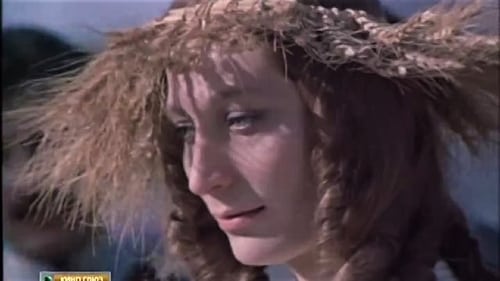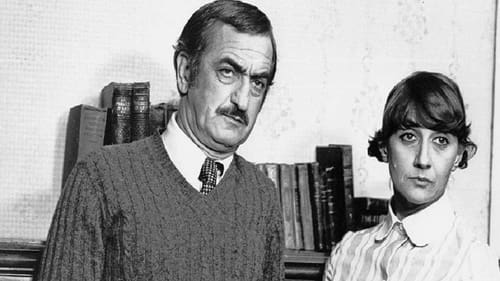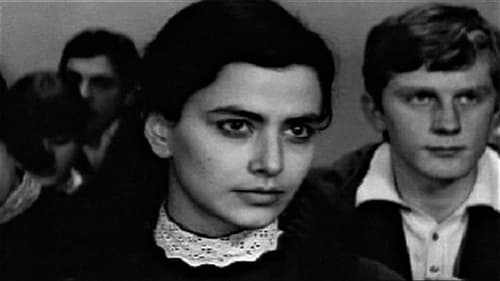Lana Gogoberidze
出生 : 1928-10-13, Tbilisi, Georgia, USSR (Georgia)

Writer
Elene is an 80-year-old writer who lives with her family, forced to stay home due to health conditions. Her comfort is cracked when her daughter's mother-in-law, Miranda, a former Soviet official, moves into the apartment, and Elene receives an unexpected call from an old love interest, Archil.

Director
Elene is an 80-year-old writer who lives with her family, forced to stay home due to health conditions. Her comfort is cracked when her daughter's mother-in-law, Miranda, a former Soviet official, moves into the apartment, and Elene receives an unexpected call from an old love interest, Archil.

Writer
Set in 1937 Stalinist Georgia, the film traces the parallel destinies of a mother, condemned by the government as "an enemy of the people" and exiled to a work camp in Siberia, and her daughter, who meanwhile is sent to an orphanage. Arriving at the overcrowded work camp, the mother and other women who are not considered strong enough to be labourers, must journey still farther, crossing the icy Siberian landscape in search of food and shelter. At the same time, the daughter escapes the orphanage and returns to her former home, where she finds that a KGB officer has taken up residence. He protects her and an uneasy rapport between them develops—one of abhorrence and attraction, need and suspicion.

Director
Set in 1937 Stalinist Georgia, the film traces the parallel destinies of a mother, condemned by the government as "an enemy of the people" and exiled to a work camp in Siberia, and her daughter, who meanwhile is sent to an orphanage. Arriving at the overcrowded work camp, the mother and other women who are not considered strong enough to be labourers, must journey still farther, crossing the icy Siberian landscape in search of food and shelter. At the same time, the daughter escapes the orphanage and returns to her former home, where she finds that a KGB officer has taken up residence. He protects her and an uneasy rapport between them develops—one of abhorrence and attraction, need and suspicion.

This glasnost-era documentary, which incorporates footage from films from the 1920s through the 1980s, looks at the history of women in Russian cinema through the eyes of Russian women directors, actors, and scriptwriters. The film’s title refers to a WWII slogan about women doing the work of absent men in the fields and at home. Featuring Kira Muratova, Natalia Ryazantseva, Inna Churikova, Nonna Mordyukova, and others.

Writer
Full Circle. Whirlwind.

Director
Full Circle. Whirlwind.

Director
This somber story of love lost forever is set against the backdrop of the changes that Communism brought to the state of Georgia in the former USSR after the 1917 Revolution. Eva and Archil are deeply in love and they pledge to be with each other always. After they marry, Archil dies suddenly and Eva is left alone and childless. Along comes the ruthless Spiridon who romances Eva and marries her - though his cold and cruel spirit break Eva's naturally buoyant self, until she sullenly eats alone, and avoids intimacy with her husband as much as possible. They adopt a daughter, who does not take sides between her glum mother and silent father. When the Communist cadres enter their village to promote the ideals of the October revolution, Eva starts to warm to her husband a little because he joins in that movement. Then her husband commits the fatal error of revealing a previous crime - an error that will later cause their grown daughter to question her parents' strange behavior.

Director
TV documentary about architect Lado Aleksi-Meskhishvili, who was also a downhill skiing and boxing champion of Georgia, directed by his widow.

Screenplay
Sophiko, a well-known journalist, seems to be more close to many of her respondents when they need her advice than to his family members. All engrossed in her work, she suddenly finds out that she is losing her husband who has started a love affair with another woman. Of course, it strikes her badly but life never lets her to concentrate on her personal problems.

Director
Sophiko, a well-known journalist, seems to be more close to many of her respondents when they need her advice than to his family members. All engrossed in her work, she suddenly finds out that she is losing her husband who has started a love affair with another woman. Of course, it strikes her badly but life never lets her to concentrate on her personal problems.

Writer
A cult of diners, restaurants and an excessive eating prevails in the City of Joy. Different contests are held in cooking the Georgian cuisine. Makro, a famous singer, decides to lend some spirituality to the city of gluttons. For that purpose she decides to set up a gallery of beautiful paintings in one of the city’s restaurants. The owners of the restaurant oppose that decision, but due to Makro’s agility the tenants of the city carry the paintings to the new museum.

Director
A cult of diners, restaurants and an excessive eating prevails in the City of Joy. Different contests are held in cooking the Georgian cuisine. Makro, a famous singer, decides to lend some spirituality to the city of gluttons. For that purpose she decides to set up a gallery of beautiful paintings in one of the city’s restaurants. The owners of the restaurant oppose that decision, but due to Makro’s agility the tenants of the city carry the paintings to the new museum.

Screenplay
Zura, a son of a rich businessman, steals a car of his father’s friend to amuse his classmates. When informed about it, the school principal discards him from the bike tournament. Nevertheless, Zura’s father manages to persuade her to allow his son to participate and even succeeds in bribing his championship. Zura’s classmates know that he became a champion undeservedly but can’t do anything about it. Only Khatuna, his alleged girlfriend, and Lexo, Zura’s friend, dare to protest against it. Their lack of loyalty enrages Zura and in the rush of the blood he crashes his father’s car. The accident takes Laxo’s life. Zura’s father does his best to save his son from deserved punishment but the first one against his decision is Zura himself.

Director
Zura, a son of a rich businessman, steals a car of his father’s friend to amuse his classmates. When informed about it, the school principal discards him from the bike tournament. Nevertheless, Zura’s father manages to persuade her to allow his son to participate and even succeeds in bribing his championship. Zura’s classmates know that he became a champion undeservedly but can’t do anything about it. Only Khatuna, his alleged girlfriend, and Lexo, Zura’s friend, dare to protest against it. Their lack of loyalty enrages Zura and in the rush of the blood he crashes his father’s car. The accident takes Laxo’s life. Zura’s father does his best to save his son from deserved punishment but the first one against his decision is Zura himself.

Director
Directed by Lana Gogoberidze.

Screenplay
In Georgia during WWII Zurikela, an orphan boy, meets Khatia, a blind girl, and vows to help her to see again.

Director
In Georgia during WWII Zurikela, an orphan boy, meets Khatia, a blind girl, and vows to help her to see again.

Writer
A three-part feature film by Georgian director Lana Ghoghoberidze, dedicated to the 40th anniversary of the Soviet Union. The film is based on Leo Qiacheli's short story "Princess Maya" and Archil Sulakauri's novels "Doves" and "Fresco". These three stories are separated by a 20-20 year interval (1921, 1941, 1961).

Director
A three-part feature film by Georgian director Lana Ghoghoberidze, dedicated to the 40th anniversary of the Soviet Union. The film is based on Leo Qiacheli's short story "Princess Maya" and Archil Sulakauri's novels "Doves" and "Fresco". These three stories are separated by a 20-20 year interval (1921, 1941, 1961).
















